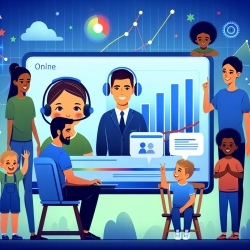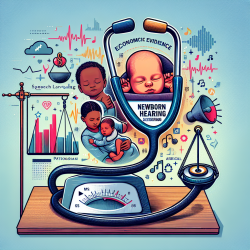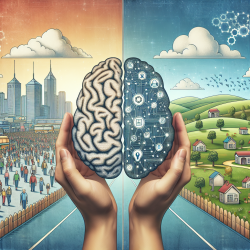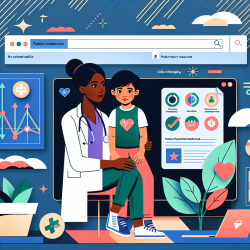Introduction: The Need for a Global Action Plan
In the realm of child development, mental health is increasingly recognized as a crucial component. The research article "Converging on child mental health – toward shared global action for child development" underscores the importance of integrating mental health into child development strategies. This integration is essential for achieving the Sustainable Development Goals (SDGs) and creating better outcomes for children worldwide.
Understanding the Research
The research highlights a significant shift in the global child health agenda from merely reducing mortality to promoting healthy social, emotional, and physical development. This shift opens up opportunities to address long-neglected child and adolescent mental health needs. The study emphasizes that mental health is not just the absence of disorders but includes beneficial attributes like forming positive relationships and maintaining self-esteem.
Key Takeaways for Practitioners
For practitioners, the research suggests several actionable steps:
- Integration: Incorporate mental health into existing child development policies and practices. This means aligning mental health with maternal health, nutrition, and education policies.
- Improvement: Use data-driven methods to continuously improve mental health interventions. Set measurable targets and use quality improvement methods to achieve them.
- Investment: Advocate for increased funding and resources for child mental health initiatives. Consider the establishment of a 'Global Fund' for child mental health and development.
Implementing Data-Driven Strategies
Data-driven strategies are essential for effective integration and improvement. Practitioners can use evidence-based interventions to address factors affecting child development, such as early stimulation, treatment of maternal depression, and school mental health programs. These interventions can be delivered across multiple settings, including schools and community services.
The Role of Online Therapy
As a provider of online therapy services, TinyEYE can play a pivotal role in implementing these strategies. Online platforms can offer scalable, accessible mental health support, particularly in low- and middle-income countries. By leveraging technology, practitioners can reach more children and provide timely interventions.
Encouraging Further Research
While the research provides a strong foundation, further studies are needed to explore the effectiveness of integrated mental health interventions in diverse settings. Practitioners are encouraged to contribute to this growing body of knowledge by conducting their own research and sharing findings with the global community.
Conclusion
Integrating mental health into child development strategies is not just beneficial but necessary for creating sustainable, healthy societies. Practitioners have a unique opportunity to lead this change by implementing data-driven methods and advocating for increased investment in mental health initiatives.
To read the original research paper, please follow this link: Converging on child mental health – toward shared global action for child development.










